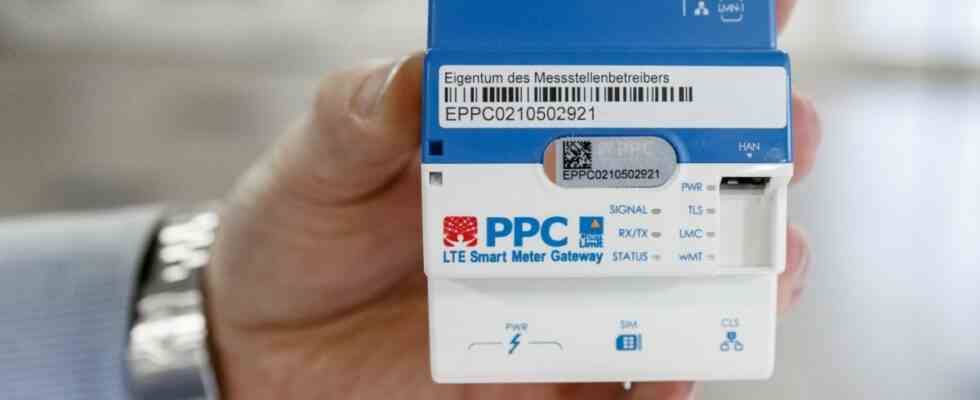Digitization has made many things easier. There are conferences for which nobody has to leave the house anymore. This newspaper can be read the evening before on flat screens, so-called tablets. The Internet makes almost every product available at any time. Digitization of this kind would be impossible without electricity – and electricity, of all things, lacks any trace of digitization.
That’s why the federal government is now trying to do what you do when things get stuck in the digital world: a fresh start. On Wednesday, the cabinet passed the draft law “to restart the digitization of the energy transition”. Finally, intelligent electricity meters are to come on a large scale – and millions of households could benefit from them.
So far, most consumers still have to rely on technology from the early last century, the so-called Ferraris meter. He stubbornly measures kilowatt hours by kilowatt hours. Digital meters are already installed in many places. However, they simply show their similarly stubborn measurement on displays. The future begins where these meters can communicate with network operators or devices – via so-called “smart meter gateways”. If it were up to the government, they should prevail by 2030.
The “Act on the Digitization of the Energy Transition” created more hurdles
Thousands of formalities have so far prevented the breakthrough. There has been a “law on the digitization of the energy transition” since 2016. But especially around the gateways, it created more hurdles than it removed elsewhere. The Federal Office for Information Security had to certify them. However, at least three companies had to offer such measuring systems independently of each other. This statement alone became a Sisyphus task for the authorities. Crazy conditions for shipping made it difficult to ship modern meters at all. In the end, the smart meters were only installed where absolutely necessary. But not in the majority of households. The progress was “too small, too slow, too late,” complains Federal Minister of Economics Robert Habeck (Greens). “We need to drive the energy system smarter.”
The restart should take care of that. The law provides for an “agile rollout”: This means that certified devices can be installed even if they do not yet master all conceivable functions. Software updates should do that later. Gradually, more and more smart meters are to become mandatory over time, initially for customers with an electricity consumption of more than 100,000 kilowatt hours a year, such as commercial enterprises. Consumers with more than 6,000 kilowatt hours follow – those who regularly charge an electric vehicle or operate a heat pump come up with such annual consumption. Even those who generate electricity themselves, for example via a solar system with an output of more than seven kilowatts, will sooner or later have to measure intelligently.
This has advantages for both sides, for electricity customers and grid operators. The latter can more easily reconcile supply and demand for electricity and have a better overview of what is going on and where in their power grid. And electricity customers can enjoy variable tariffs. This makes electricity much cheaper for them at some hours of the day and more expensive at others. If you can adjust your consumption accordingly, you save a lot of money.
Every electricity supplier should have to offer a dynamic tariff
Such fluctuations in the price of electricity already exist. For example, when the wind is blowing or the sun is shining, wholesale electricity prices drop. However, the vast majority of consumers are not aware of this, their contracts are as flexible as a Ferraris meter – namely not at all. From 2025, according to the law, every supplier should now have to offer a dynamic tariff. And every electricity customer should also be able to benefit from an intelligent meter, even if their household consumes less than 6000 kilowatt hours a year – within four months of placing the order. According to the draft law, the intelligent measurement must not cost more than 20 euros per year.
The electricity industry is already afraid that a run on the new measuring devices could complicate their spread. But this is inefficient, warns Kerstin Andreae, head of the industry association BDEW, “because all customer requests would be preferable, regardless of their benefit for the overall system”. The Bundestag must improve. The law is expected to come into force in the spring.

